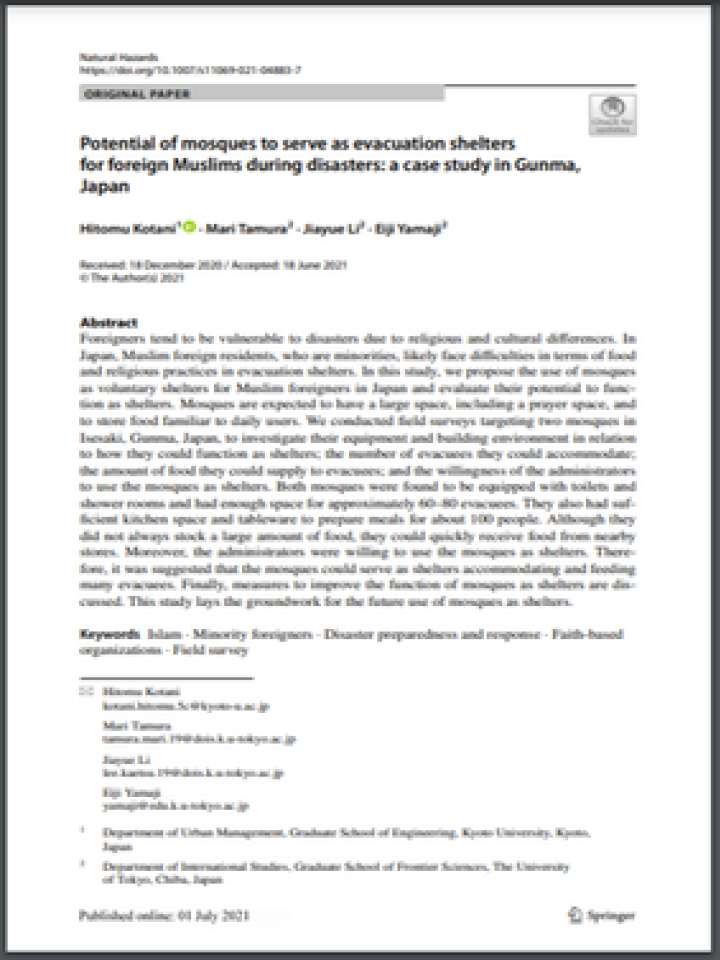Potential of mosques to serve as evacuation shelters for foreign Muslims during disasters: a case study in Gunma, Japan
In this study, the authors propose the use of mosques as voluntary shelters for Muslim foreigners in Japan and evaluate their potential to function as shelters. Foreigners tend to be vulnerable to disasters due to religious and cultural differences. In Japan, Muslim foreign residents, who are minorities, likely face difficulties in terms of food and religious practices in evacuation shelters. Mosques are expected to have a large space, including a prayer space, and to store food familiar to daily users. The authors conducted field surveys targeting two mosques in Isesaki, Gunma, Japan, to investigate their equipment and building environment in relation to how they could function as shelters; the number of evacuees they could accommodate; the amount of food they could supply to evacuees; and the willingness of the administrators to use the mosques as shelters.
Both mosques were found to be equipped with toilets and shower rooms and had enough space for approximately 60–80 evacuees. They also had sufficient kitchen space and tableware to prepare meals for about 100 people. Although they did not always stock a large amount of food, they could quickly receive food from nearby stores. Moreover, the administrators were willing to use the mosques as shelters. Therefore, it was suggested that the mosques could serve as shelters accommodating and feeding many evacuees. Finally, measures to improve the function of mosques as shelters are discussed. This study lays the groundwork for the future use of mosques as shelters.
Explore further
